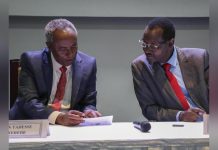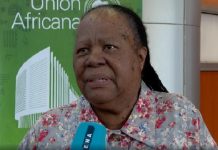Africa-Press-Ethiopia
When Ethiopian Prime Minister Abiy Ahmed received the Nobel Peace Prize in 2019, he was lauded as a regional peacemaker. Now, he is presiding over a protracted civil war that by many accounts bears the hallmarks of genocide and has the potential to destabilize the wider Horn of Africa region.
In November, Abiy ordered a military offensive in the northern Tigray region and promised that the conflict would be resolved quickly. Eight months on, the fighting has left thousands dead, forced more than 1.7 million to flee, fueled famine and given rise to a wave of atrocities.
Ethiopia was struggling with significant economic, ethnic and political challenges long before a feud between Abiy and the region’s former ruling party, the Tigray People’s Liberation Front (TPLF), bubbled over into unrest. The war is the culmination of escalating tensions between the two sides, and the most dire of several recent ethno-nationalist clashes in Africa’s second-most populous country.
Since the conflict began, Ethiopia’s government has clamped down on communications and media, effectively sealing off Tigray. Against that murky backdrop, it has often been challenging to understand what is going on in the region.






